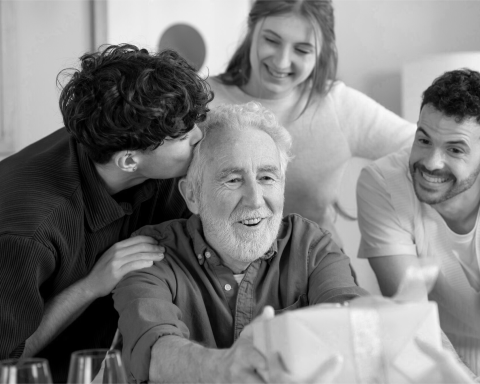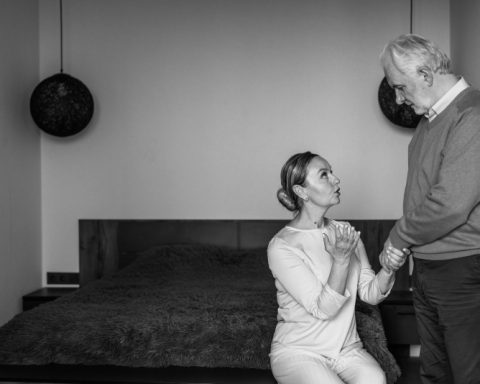As people grow and age, they will surely need help taking care of themselves. Couples are no exception—one person needs to take care of their spouse when they age.
Spousal caregiving is a vital and important part of old age, where one person takes care of their partner. In addition to its importance, being a caregiver for a spouse can be very physically, mentally, and financially demanding. Hence, it is very important for someone to know how to properly and effectively navigate it.
In this article, you will learn the scope of spousal caregiving and how to maintain the well-being of your spouse and your marriage, from the challenges and demands to the strategies for being effective in this unique life stage. Apply the following tips to ensure that you and your partner can effectively navigate through this stage with resilience and lots of love.
Understanding the landscape of spousal caregiving
When you’re married, and your partner grows old or falls ill, you can be seen as a spousal caregiver. In the U.S. alone, there are more than 7 million spousal caregivers.
While navigating this new stage of your life, other than thinking and watching about your partner’s current well-being, you need to understand that your well-being also matters and must be taken seriously. This goes beyond physical demands to emotional ones, such as the common feeling of guilt, loneliness, etc.
Read more: Caregiver Syndrome: Tips for Relieving Stress
Physical demands
Spousal caregiving has many challenges and emotional and physical demands. Taking care of a sick and aging partner can take a toll on your physical health. You need to take care of your old spouse’s daily needs, from simple things such as using the toilet and taking a bath to things that require a lot of your own physical effort.
Hence, many spousal caretakers struggle to manage their own physical health and may experience musculoskeletal discomfort, fatigue, and other physical discomforts due to the demands of the job.
Common challenges
Taking care of your spouse in old age seems romantic and may bring couples together, but it also has some challenges on its own. The caregivers may experience some stress, and a feeling of loneliness due to the isolation and the demands of caregiving. They may struggle with taking care of their own health and go through disruptions, from social relationships to their own financial responsibilities.
Concerns may also arise regarding your relationship with your spouse. Although caring for your spouse is well-intentioned, trying to parent your partner while being their caregiver can negatively impact your relationship.
Dealing with all these issues can leave caregivers feeling overwhelmed by their responsibilities, potentially leading to burnout and decreased well-being.
Strategies for effective spousal caregiving
The landscape of spousal caregiving has its own set of challenges that may seem like a nightmare to some, but there are some strategies that you could use to navigate it more easily and effectively. It can be as simple as establishing a routine that benefits you and your partner and even understanding the legal aspects of spousal caregiving. Here are some strategies that could help you achieve more effective spousal caregiving.
Establish a routine
Routine can help caregivers by giving them the opportunity to make their lives easier by helping them manage their time more effectively, thus reducing the stress that they may feel being a caregiver. This leads to caregivers eventually prioritizing their own needs and making sure they have enough time to rest and take care of themselves. This includes how they can create a schedule for their caregiving tasks, meals, and other daily activities.
Read more: How to Make Personal and Realistic Daily Routines
Leverage a support network
Having a support network in your life is one of the most important things, as it can help you cope and go through a lot of tough times. It’s the same when you are acting as a spousal caregiver, as a support network is considered one of the things that makes effective spousal caregiving. Friends, family, and even professionals can help and provide temporary support, which will reduce the caregiver’s stress and improve their overall well-being.
Practice self-care
Taking care of yourself is also one of the most important things to consider when being a spouse’s caregiver. Self-care is one way to maintain the stability of the caregiver’s mental and physical health. This includes many things that can bring joy, such as maintaining hobbies, activities, and socializing. And in the midst of it all, caregivers need to always have their medical check-ups and appointments.
Plan financially
Other than their own well-being, spousal caregivers need to consider their financial well-being as well. Becoming a caregiver for a spouse can be somewhat expensive, which is why financial planning is extremely important. You could create a budget, purchase insurance, and plan for the long term. Consider taking professional advice and assistance to keep up with the financial demands of caregiving more properly and effectively.
Understand the legal aspects
Legal aspects are one thing that many miss out on when thinking about taking care of their loved ones in their old age. While it is complicated, understanding the legal aspects can help you for a better and more prepared future as a spousal caregiver. This includes many things, such as ensuring your partner’s wishes are respected and protected for the future.
In conclusion
Caregiving in aging relationships can be quite difficult. The landscape can be quite unclear and has many challenges and demands. Physical, emotional, and financial challenges are many and quite varied. But when you know how to properly navigate it, you can make sure that spousal caregiving can be handled quite well. All you need to do is understand it and know the strategies to navigate them. Creating a routine, support network, self-care, financial planning, and legal aspects are some of the crucial components that can help you care for your spouse in their last years of life.
If you would like to see more resources on aging, check out the Family Science Labs. The lab uses the research of the Institute for Life Management Science to produce courses, certifications, podcasts, videos, and other tools. Check out the Family Science Labs today.
Photo by Freepik




